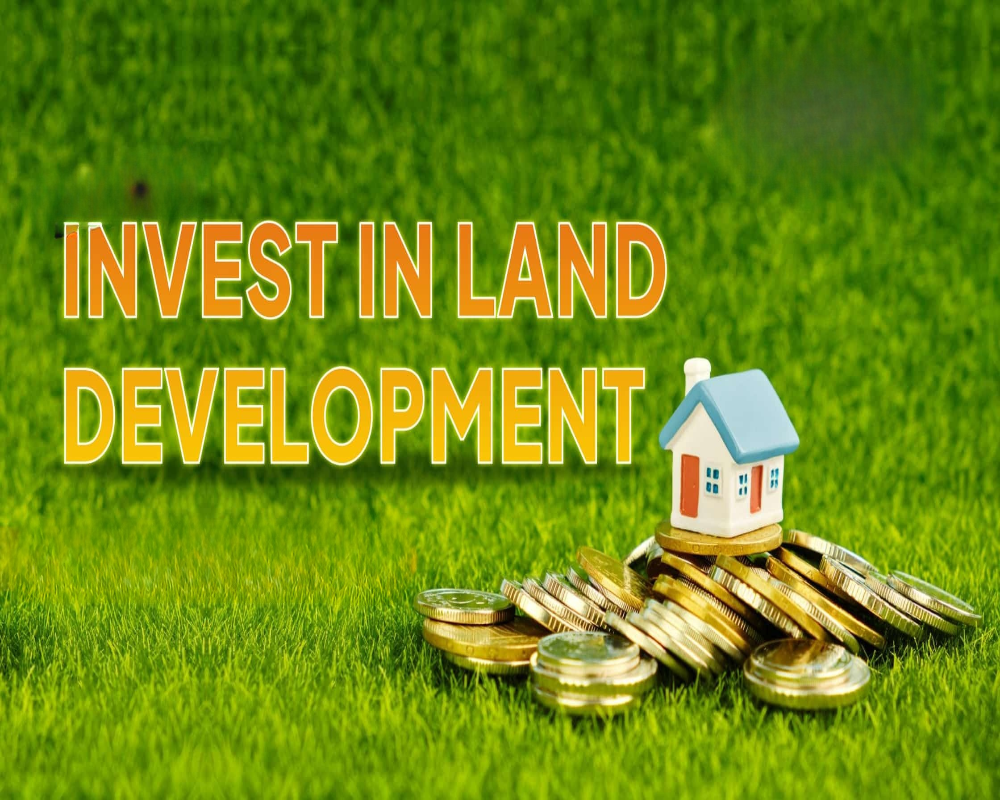Introduction
Rezoning-based land investment models focus on acquiring land with the potential for a change in its legal use classification. Investors target parcels currently zoned for agricultural, residential, or low-density purposes and aim to convert them into industrial or commercial zones. This model is built on understanding urban expansion, infrastructure development, and regulatory planning. It offers high returns by unlocking value through legal transformation rather than construction or occupancy. These models require a long-term perspective and careful policy alignment. Strategic execution turns regulatory shifts into profitable investment outcomes.
Land Banking with Future Rezoning Intent
Investors purchase large plots on the outskirts of cities or near industrial corridors with expectations of future rezoning. These lands are held over time until the area becomes eligible for higher-value zoning due to urban growth or planning changes. Entry costs are low, and the potential for appreciation is high. The key is identifying locations with foreseeable demand and policy support. Holding duration varies based on government planning cycles.
Pre-Application Rezoning Strategy
In this model, the investor initiates the rezoning process shortly after acquisition. Applications are submitted to local planning authorities to convert the land’s use category. Legal and technical due diligence is conducted before applying. The process involves site surveys, zoning justification, and community engagement. Once approved, the land’s value increases significantly. This strategy suits investors with regulatory experience.
Joint Venture Development after Rezoning
After rezoning approval, investors may partner with developers or industrial firms for project execution. The land serves as the equity contribution in a joint venture. Development partners bring capital, construction, and operational expertise. Profits are shared based on contribution and agreement. This model reduces financial burden and enhances land utilization. It also supports long-term income through revenue sharing.
Buy and Flip Post-Zoning Approval
Some investors focus purely on value appreciation by selling the land immediately after rezoning approval. The land is marketed to builders, industrial users, or institutional buyers. The profit lies in the difference between purchase cost and post-zoning sale price. No construction or development is involved. This model requires precise execution and timing. Exit planning is critical to capture peak value.
Infrastructure-Led Rezoning Investment
Investors align their purchases with announced infrastructure projects such as highways, airports, or industrial parks. Government plans often lead to zoning reclassification in surrounding areas. The land is bought before implementation begins. As infrastructure develops, the land gains eligibility for rezoning. This model depends heavily on policy analysis and government coordination. Patience and strategic location are key success factors.
Cluster-Based Zoning Transformation
Multiple investors collaborate to acquire adjacent plots in a region expected to transition to industrial use. A unified rezoning application is filed to create a larger, continuous development block. Authorities prefer this model due to improved planning potential. The cluster approach enhances plot utility and resale options. Value is created through scale and planning efficiency. Collaboration must be well-structured legally.
Policy-Driven Investment Targeting
Investors study regional development policies, economic zones, or master plans to find zoning transformation opportunities. Land is acquired based on its strategic fit with government objectives. Locations near smart cities, economic corridors, or logistic parks are prime targets. Alignment with official planning increases rezoning approval chances. Understanding policy shifts gives investors a competitive advantage.
Interim Leasing During Rezoning Wait Period
While waiting for rezoning approval, investors lease the land for low-impact uses like storage or agriculture. This generates temporary income and reduces holding costs. The land remains under control while value appreciates in the background. Short-term leases are structured to avoid interference with rezoning plans. Interim revenue supports financial sustainability of the investment.
Exit through Institutional Sale Post-Zoning
Once rezoning is granted and land records updated, the plot becomes eligible for sale to institutional or corporate buyers. These buyers value legal clarity and prefer zoned land. Institutional sale brings higher returns and faster transaction cycles. Clean documentation and site readiness improve sale prospects. This model focuses on maximizing value and liquidity after legal conversion.
Regulatory Risk Mitigation Approach
Rezoning-based models include strategies to manage legal and bureaucratic risk. This involves engaging with consultants, legal advisors, and planners from the start. Thorough documentation, community engagement, and alignment with bylaws reduce rejection risk. Investors also diversify across regions and timelines to avoid project-level dependency. Risk mitigation is built into every phase of the investment.
Conclusion
Rezoning-based land investment models offer a high-reward approach by converting underutilized land into development-ready industrial assets. These strategies require foresight, planning expertise, and regulatory understanding. Investors benefit from value creation through zoning rather than physical development. Whether through land banking, joint ventures, or policy targeting, each model offers a structured path to profit. Legal clarity, location intelligence, and timing determine success. With growing urban and industrial demand, rezoning remains a dynamic and impactful investment avenue.
Hashtag
#Rezoning #LandInvestment #RealEstateInvesting #PropertyDevelopment #UrbanPlanning #InvestmentStrategies #LandUse #RealEstateMarket #ZoningLaws #PropertyInvestment #RealEstateTrends #InvestmentOpportunities #LandDevelopment #SmartGrowth #RealEstateEducation #FinancialFreedom #WealthBuilding #SustainableDevelopment #RealEstateTips #MarketAnalysis




